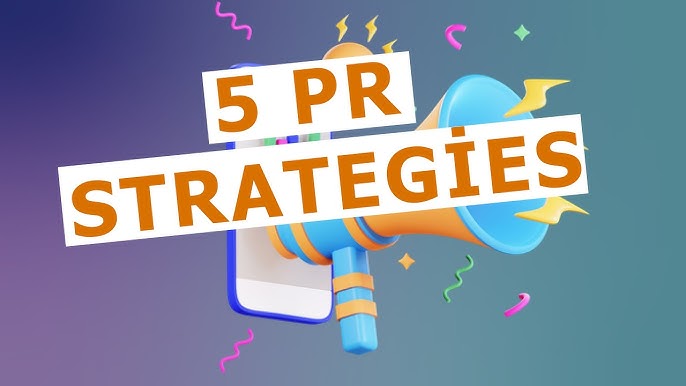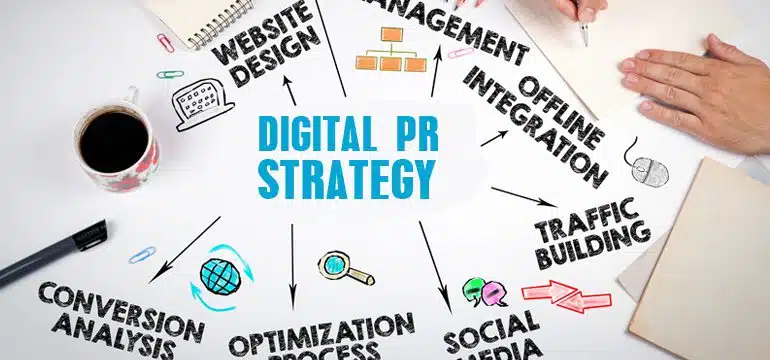Mastering digital PR strategies to enhance educational visibility and attract prospective students.
Introduction: The Evolving Landscape of Public Relations
Public relations (PR) has always been integral to building a successful business or institution. However, in the digital age, the landscape of PR has dramatically shifted. The advent of the internet, social media, and search engines has created an entirely new approach to managing public perceptions, promoting brands, and communicating with an audience. The importance of digital PR strategies cannot be overstated, as they provide a way to reach broader, more targeted audiences than traditional methods ever could.
For educational institutions, such as Al Mithaq Institute, mastering digital PR strategies is essential. The institute offers a diverse range of diplomas, from business management and law to IT skills and marketing. In an increasingly competitive educational landscape, a strong digital presence can significantly influence a prospective student’s decision to enroll. This article will explore various effective PR strategies in the digital age, focusing on their role in attracting students to educational institutions, such as Al Mithaq Institute, that offer both online and offline learning options.
1. Understanding Public Relations in the Digital Age
The Shift from Traditional to Digital PR
Traditional PR was once dominated by methods such as media relations, press releases, and event sponsorships. While these methods are still effective in some scenarios, the rise of digital channels has transformed how PR professionals engage with the public. Digital PR involves using online tools, platforms, and strategies to manage a brand’s reputation, increase visibility, and engage with an audience.
Unlike traditional PR, digital PR is interactive. It provides a two-way communication channel, where institutions like Al Mithaq Institute can not only broadcast information but also listen to the feedback of their stakeholders—students, faculty, and prospective students. Moreover, digital PR enables institutions to engage with a global audience in real-time.
Key Characteristics of Digital PR
- Social Media Engagement: Platforms such as Facebook, Twitter, LinkedIn, and Instagram are vital for sharing information, engaging with stakeholders, and promoting educational programs.
- SEO and Content Marketing: Search engine optimization (SEO) and content marketing are cornerstones of digital PR. Optimizing your online content helps educational institutions reach students who are searching for programs in specific fields like law, business, or marketing.
- Online Reputation Management: With the growth of online reviews and forums, reputation management is essential. Negative reviews or feedback can be addressed quickly through strategic digital PR efforts.
- Influencer Collaborations: Partnering with thought leaders or influencers in the education space can boost credibility and awareness about your institution’s offerings.
Why PR Matters for Educational Institutions
For educational institutions, digital PR is a game-changer. When students are deciding where to invest their time and money, they often conduct extensive online research. A well-executed digital PR strategy ensures that the institution’s programs are visible in search results and positively represented across digital platforms.
At Al Mithaq Institute, students can access diplomas in a wide variety of subjects, including management, law, IT skills, and more. Effective digital PR can increase awareness of these programs, attract potential students, and build long-term relationships with alumni, industry experts, and influencers. Digital PR also creates opportunities for Al Mithaq Institute to highlight its unique strengths, such as internationally recognized accreditation and experienced faculty.
2. Crafting a Compelling Digital Presence
A compelling digital presence is at the heart of any successful digital PR strategy. For educational institutions, it is essential to create a robust online presence that not only highlights their offerings but also reflects their mission and values.
Website Optimization
A well-designed website is often the first point of contact between an institution and potential students. Al Mithaq Institute’s website must be optimized to meet the expectations of today’s internet users. Here are several key components of website optimization for effective digital PR:
- Mobile-Friendly Design: With over 50% of web traffic coming from mobile devices, it is essential for your website to be mobile-responsive. A mobile-friendly website ensures that prospective students can easily navigate your site, learn about your programs, and even complete the enrollment process from their smartphones or tablets.
- SEO-Friendly Content: Using relevant keywords across your website will help it rank higher in search engine results pages (SERPs). For instance, for a diploma in law, potential students might search for “online criminal law diploma” or “accredited law diploma programs.” Incorporating these keywords into course descriptions, faculty bios, and blog posts will help your institution appear more prominently in search results.
- Clear Call-to-Actions (CTAs): Every page on your website should include a strong, compelling call-to-action. Whether it’s “Enroll Today,” “Contact Us for More Information,” or “Browse Our Courses,” these CTAs will guide visitors to the next step in their decision-making process.
By optimizing the Al Mithaq Institute website in this manner, you ensure that prospective students have a seamless experience and can quickly access the information they need to make informed decisions about their education.
Content MarketingContent marketing is another powerful tool for digital PR. The key to effective content marketing is creating valuable, engaging, and informative content that resonates with your target audience.
- Blog Posts: Regularly publishing blog posts on topics related to the educational programs offered by Al Mithaq Institute is a great way to provide value to potential students. Blog posts can cover industry trends, the benefits of specific diplomas, career opportunities, and success stories from current students or graduates.
- Videos: Educational videos, such as course previews, faculty introductions, and student testimonials, can be extremely effective in engaging prospective students. Videos provide an authentic view of the learning experience at Al Mithaq Institute and help build trust.
- eBooks and Case Studies: Offering downloadable resources such as eBooks, whitepapers, and case studies gives you an opportunity to showcase your expertise and provide valuable knowledge to prospective students. A case study on how a student advanced their career after completing a business management diploma at Al Mithaq Institute, for example, can serve as an inspiring story for potential students.
Effective content marketing helps establish your institution as an authority in your field, while also improving your website’s SEO performance by generating inbound links and increasing engagement.
3. Social Media Engagement and Influencer Marketing
In the digital age, social media platforms have become central to PR strategies. Platforms like Facebook, Instagram, and LinkedIn allow educational institutions to directly engage with their target audience—current students, prospective students, alumni, and industry experts. Social media offers a unique opportunity to foster real-time interactions, promote programs, and build brand loyalty.
Social Media Strategies for Al Mithaq Institute
- Targeted Ads: Social media platforms, especially Facebook and Instagram, allow you to run targeted ad campaigns. These campaigns can be tailored to reach specific demographics such as individuals interested in law, business, IT, or marketing diplomas. Additionally, ads can be geographically targeted to reach students from specific regions, whether locally in Dubai or internationally.
- LinkedIn for Professional Engagement: LinkedIn is a powerful platform for professional networking. Al Mithaq Institute can leverage LinkedIn to promote courses related to business management, law, and IT while also highlighting the institute’s faculty members, industry connections, and alumni success stories.
- Engaging with Hashtags: On platforms like Twitter and Instagram, hashtags play a vital role in visibility. Al Mithaq Institute can leverage hashtags such as #OnlineDiplomas, #LawEducation, or #BusinessManagementCourses to increase the visibility of posts and connect with users searching for similar content.
- Real-Time Engagement: Social media allows institutions to engage with their audience in real-time. Responding to comments, answering inquiries, and sharing relevant updates all help create a sense of community and trust.
Influencer marketing has become an increasingly effective PR strategy, particularly in the education sector. Partnering with influencers who have an established presence in the education, career, or professional development space can help promote Al Mithaq Institute’s offerings to a broader audience.
Influencers in the education sector often have followers who are interested in professional development and career advancement. By partnering with these influencers, Al Mithaq Institute can reach prospective students who are looking for diploma programs to enhance their careers.







